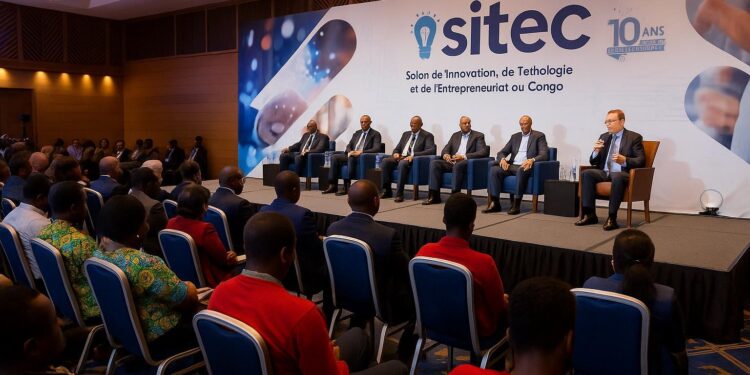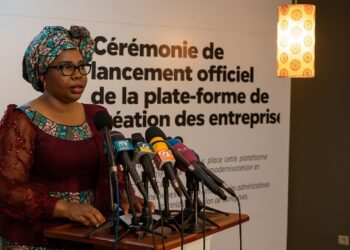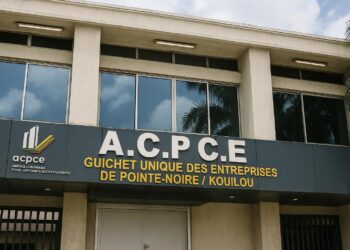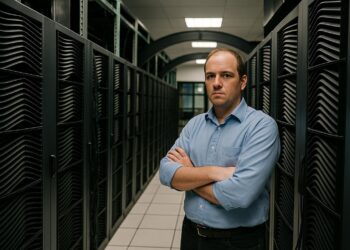Brazzaville prepares for Sitec 2025
From 11 to 12 November 2025, the Bantu Hub Foundation will host the second Salon of Innovation, Technology and Entrepreneurship, known as Sitec, inside the Brazzaville conference centre overlooking the Congo River, reaffirming the capital’s ambition to emerge as Central Africa’s digital marketplace.
Last year’s inaugural edition attracted 1,800 visitors and secured seed pledges worth CFA 160 million, according to organisers; the forthcoming chapter, themed “Valuing Youth Potential to Build a Future Economy”, intends to double that traction and convert it into deal flow with concrete monitoring mechanisms.
Youth at the core of Congo’s digital strategy
Sitec aligns with the National Development Plan 2022-2026, which prioritises diversification beyond hydrocarbons and places digital entrepreneurship among its six flagship programmes, a senior official at the Ministry of Posts and Digital Economy noted during the launch briefing in July.
By focusing explicitly on under-35 entrepreneurs, the salon also dovetails with the presidential initiative “Jeunesse 2025”, a multiyear scheme that channels concessional loans and mentoring to start-ups able to create jobs in software, fintech, agritech or green energy.
Masterclasses to build practical skills
Ahead of the fair, intensive masterclasses will gather more than 600 entrepreneurs, students and young professionals on 9 and 10 November, covering artificial intelligence, venture modelling, digital marketing and project structuring, all delivered free of charge through a partnership with the African Development Bank’s coding for employment programme.
Selected participants will later graduate to a pitch competition during the salon itself, with the three best teams receiving cloud-service credits, legal incubation and, crucially, exposure to local angel networks such as Congo Business Angels and the Pan-African VC fund LoftyInc.
Capital, data and confidence for investors
Investors are watching Congo’s demographic curve closely: two out of three citizens are under 30, smartphone penetration has reached 58 percent, and mobile money transactions grew 42 percent last year, according to the telecom regulator Arpce, indicating fertile ground for scalable digital services.
Bantu Hub’s executive director, Prisca Mavoungou, told the press that the 2023 edition generated twenty follow-up meetings between founders and financiers; this year, she expects to host twice as many bilateral sessions by curating sector-specific deal rooms in fintech, agritech and creative industries.
Government agencies, including the Sovereign Fund of the Republic of Congo and the SME promotion bureau, have confirmed their attendance, signalling an intention to co-finance promising ventures through blended instruments that combine public grants with private equity co-investments.
Infrastructure and regulatory sweeteners
Beyond capital, Sitec will showcase supportive infrastructure—new fibre backbones lit by Central African Backbone phase 3, data-centre capacity at RackAfrica Brazzaville and tax incentives available inside the Special Economic Zone of Maloukou—aimed at lowering the cost of launching digital services.
During a recent webinar, the Agency for the Promotion of Public-Private Partnerships highlighted that digital projects qualify for streamlined procurement under Decree 2022-86, reducing approval timelines to under ninety days; such clarity is expected to reassure institutional investors exploring telecom or e-government concessions.
Local banks, notably BGFI and Ecobank, have started tailoring working-capital lines denominated in CFA and dollars for early-stage firms earning revenue in mobile money, a flexibility praised by participants of the 2023 edition who previously struggled with collateral requirements.
Regional and diaspora connections
Organisers are courting the diaspora through a virtual roadshow co-hosted with the World Bank’s Talent Mobility Program, enabling Congolese engineers in Paris, Montréal or Abidjan to mentor teams and, in certain cases, repatriate seed capital via regulated crowdfunding platforms.
Regional integration also features strongly: delegations from Gabon’s AgriHack, Cameroon’s Silicon Mountain and Rwanda’s Transform Africa Summit have been invited, a move designed to position Brazzaville as a corridor linking ECCAS markets with the wider AfCFTA digital trade zone.
The International Telecom Union’s latest ICT Development Index ranks Congo fourteenth in Africa, up three places; analysts believe networking with these regional hubs could accelerate further gains, especially in broadband affordability and e-commerce logistics.
Shaping a resilient tech ecosystem
Looking beyond November, Bantu Hub plans quarterly follow-up clinics to track cohort performance, using a dashboard shared with the ministries of Economy, Higher Education and Small Business; key metrics will include survival rate, revenue growth and female participation.
Several corporates, such as TotalEnergies Congo and MTN, have signalled interest in embedding alumni within their supply chains, an approach that could shorten procurement cycles for start-ups while helping multinationals localise content in compliance with the 2021 subcontracting law.
If Sitec meets its attendance target of 3,500 visitors and secures at least five term-sheets, proponents argue it will mark a decisive step toward the president’s objective of generating 20,000 tech jobs by 2030, cementing Brazzaville’s reputation as an emerging continental innovation node.
With an enabling regulatory framework, expanding infrastructure and a committed pool of young talent, stakeholders describe the forthcoming salon less as a two-day event and more as the visible launchpad of a long-term transformation aiming to diversify Congo’s economy in a sustainable, inclusive manner.












































